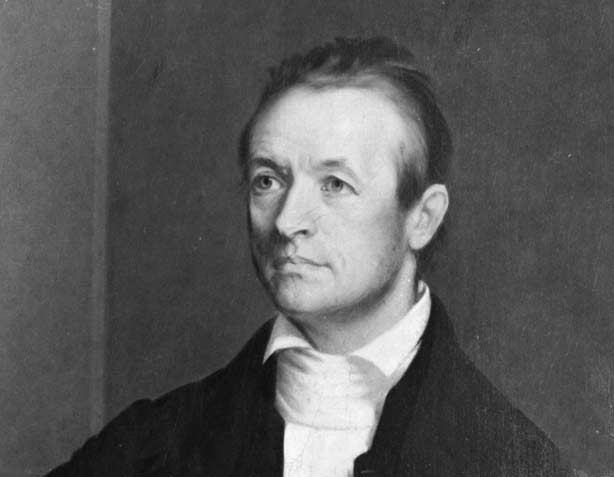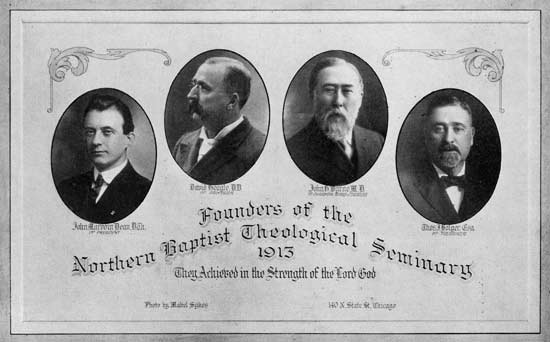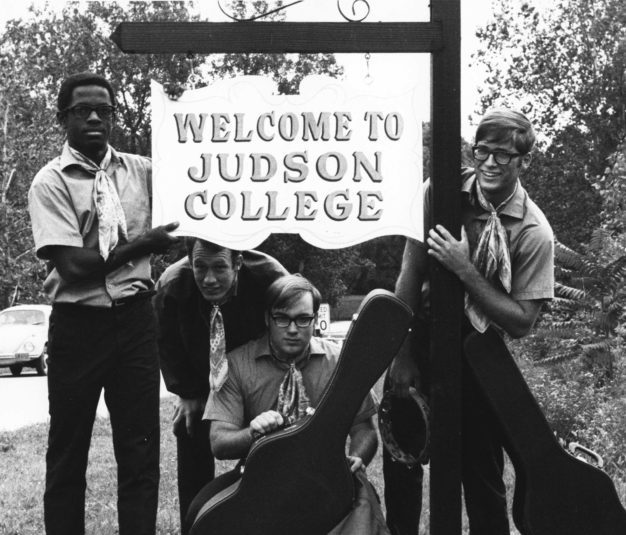Mission
Judson is an evangelical Christian university that represents the Church at work in higher education, equipping students to be fully developed, responsible persons who glorify God by the quality of their personal relationships, their work, and their citizenship within the community, the nation and the world. Through a broadly based education in the liberal arts, sciences and professions, the university enables its students to acquire ideas and concepts that sharpen their insights, develop skills appropriate to their career goals, and develop the skills and commitment for lifelong learning. The Judson community experience challenges graduates to be decisive leaders and active participants in church and society, articulate proponents of Biblical Christianity, persuasive advocates for the sovereignty of God over all life, and effective ambassadors for Christ.
Faith Identity
October 2018
Historical Perspective and Contemporary Context
Judson University is and has been a conservative, evangelical Christian university that represents the Church at work in higher education, equipping students to be fully developed, responsible persons who glorify God by the quality of their personal relationships, their work, and their citizenship within the community, the nation and the world. In addition, and as stated in the “1968 Statement of Purpose” and reflected in other documents, the academic experience at Judson is founded within the context of the liberal arts tradition.
Judson’s faith identity is defined by three foundational principles. First, and as mentioned above, Judson is a conservative, evangelical, Christian university, reflecting the commitment to share God’s love through Jesus Christ throughout the world. Second, Judson is a Baptist institution of higher education, and its historical faith perspective shapes its academic and co-curricular programs. Third, the evangelical Baptist commitment provides a learning environment that is predominantly, but not exclusively, Christian. References to these foundational principles are found in the foundational documents of the University.
Mission Statement & Educational Goals
1968 Statement of Purpose
Operational Objectives
Board of Trustees Policy Manual
Trustee Covenant and Annual Affirmation
Faculty Handbook
Student Handbook
Personnel (Staff) Handbook
Educational Goals
Community Standards
Lifestyle Expectations and Conduct Guidelines (faculty, staff and student versions)
Ten Spiritual Qualities of Judson’s Faith Identity
There are ten qualities that clearly reflect how Judson University Trustees, administrators, faculty, staff, students and alumni are to live out the three foundational principles of the University’s faith identity. The aforementioned seminal documents also include specific ways, methods and requirements relating to putting into practice the following ten qualities.
The most public statements about Judson’s Baptist heritage are the university’s legal and public documents, which include “Judson University – A Baptist Institution.” Clearly stating a denominational lineage immediately distinguishes the university from other faith-based institutions as well as from other evangelical Christian colleges. This commitment is also found in the Trustee Bylaws, which state that the largest majority of the Board must be Baptist, and at least half of those individuals must be American Baptist. For several years, Judson has positioned itself as a pan-Baptist organization, and it has cooperative relationships with American Baptist Churches U.S.A., Seventh Day Baptist and the North American Baptists. The Board of Trustees Policy Manual affirms Judson’s denominational identity with this statement: “Baptists are a diverse people with a common commitment to freedom of conscience, the truthfulness of Scripture, believer’s baptism by immersion, religious liberty and separation of church and state, local church autonomy and the priesthood of all believers. This distinction guides our mission.” Judson remains directly connected to Baptist churches, and the University still receives annual financial support from over 100 Baptist churches annually. Judson also continues to hold events and programs such as alumni receptions and student programs that reflect Baptist distinctives and values.
As a Baptist university, and in addition to the ten spiritual qualities included in this document, we affirm several important Baptist beliefs to include the following: church autonomy; congregational governance; believer’s baptism by immersion and its symbolic representation; eternal security; the ordinances of Baptism and Lord’s Supper; salvation by faith alone; and the commitment to evangelism.
Reflective of both Baptist and evangelical Christian theology, the leadership of Judson is unwaveringly committed to “the eternal existence of God in three Persons: The Father, the Son, and the Holy Spirit.” The Faculty Handbook reflects this commitment in multiple references. Co-curricular programs, including chapel, Bible studies and prayer meetings, and Judson sponsored campus events, openly affirm Judson’s commitment to the Trinity.
The Judson University Faculty Handbook states, “The Bible is the final authority and trustworthy for faith and practice.” There are over a dozen specific statements reflecting the authority of scripture in Judson’s foundational documents. Many of these references are very specific and further describe how Holy Scripture should guide the actions of faculty, staff and students. Here are several examples.
“… the divine inspiration and reliability of the Scriptures as the authority for Christian living and church order” – Trustee Covenant and Annual Affirmation
“Self-control – We will channel our desires and energies into biblically acceptable expressions.” – Community Standards, Faculty Handbook
“Judson University adheres to certain biblical principles as men and women in pursuit of both academic excellence and Christian ideals and values, and our personal conduct should reflect this pursuit (2 Tim. 2:15; Col. 3:12-17)” – Student Handbook
The characteristics of biblical authority make the Bible, in the Old and New testaments, trustworthy. Biblical authority deserves prominent status because it rightly determines what we believe and how we live. Judson University’s expression of biblical authority will not be interpreted outside the spectrum of the statements below.
The characteristics of biblical authority make the Bible, in the Old and New testaments, trustworthy. Biblical authority deserves prominent status because it rightly determines what we believe and how we live. Judson University’s expression of biblical authority will not be interpreted outside the spectrum of the statements below.
American Baptists Churches U.S.A.
American Baptists believe that the Bible, composed of the Old and New Testaments, is the divinely inspired Word of God, the final written authority and trustworthy for faith and practice. It is to be interpreted responsibly under the guidance of the Holy Spirit within the community of faith. The primary purpose of the Bible is to point to Jesus Christ, the living Lord of the Church. (Identity Statement)
Bethel University (Minnesota)
We believe that the Bible is the Word of God, fully inspired and without error in the original manuscripts, written under the inspiration of the Holy Spirit, and that it has supreme authority in all matters of faith and conduct.
The Chicago Statement (Short Statement)
God, who is Himself Truth and speaks truth only, has inspired Holy Scripture in order thereby to reveal Himself to lost mankind through Jesus Christ as Creator and Lord, Redeemer and Judge. Holy Scripture is God’s witness to Himself.
Holy Scripture, being God’s own Word, written by men prepared and superintended by His Spirit, is of infallible divine authority in all matters upon which it touches: it is to be believed, as God’s instruction, in all that it affirms: obeyed, as God’s command, in all that it requires; embraced, as God’s pledge, in all that it promises.
The Holy Spirit, Scripture’s divine Author, both authenticates it to us by His inward witness and opens our minds to understand its meaning.
Being wholly and verbally God-given, Scripture is without error or fault in all its teaching, no less in what it states about God’s acts in creation, about the events of world history, and about its own literary origins under God, than in its witness to God’s saving grace in individual lives.
The authority of Scripture is inescapably impaired if this total divine inerrancy is in any way limited or disregarded, or made relative to a view of truth contrary to the Bible’s own; and such lapses bring serious loss to both the individual and the Church.
National Association of Evangelicals
We believe the Bible to be the inspired, the only infallible, authoritative Word of God.
Judson’s commitment to admitting Christians as well as non-believers, combined with the liberal arts foundation, serves as the basis for requiring core courses in biblical studies. Current traditional undergraduate students are required to complete three core courses in biblical studies. For professing Christians, these courses are meant to deepen students’ understanding and application of God’s word. For non-believers, these courses share God’s truth through the direct study of the word of God. Additionally, the study of the Bible is a deep academic enterprise of understanding God’s created order within broader context of the liberal arts.
The chapel programs at Judson University are essential to the spiritual development of students as well as the faculty and staff. For Judson students who are not professing Christians, chapel along with the core courses in biblical studies may be the only significant engagement they have with God’s word and Christian worship. Traditional undergraduate students are required to attend a specific number of chapels each semester. Several faculty and staff lead a virtual chapel experiences for adult and online students in which those students may voluntarily participate during their course of study. Judson’s commitment to chapel includes the 10:00 – 10:45 a.m. time on Monday, Wednesday and Friday with no classes offered or significant meetings scheduled.
Judson University requires Trustees, administration, faculty, staff and students to commit to a comprehensive lifestyle statement reflective of biblical principles. Each person is required to affirm this statement and acknowledge that they will honor those commitments while associated with the University. There are specific and separate statements for Trustees, faculty, staff and students. Furthermore, the lifestyle expectations progress to a higher form of accountability moving from the student to the faculty/staff to the Trustees. In addition, the biblical commitment to living a Godly lifestyle is higher for individuals who accept leadership roles at Judson.
Since Judson was founded in 1963, it has not required that students be professing Christians. This commitment to serving individuals with no or little faith life is seen as an important part of Judson’s evangelical Baptist mission and vision.
Judson University has described the commitment to intellectual rigor as profoundly Biblical. This is clearly outlined in the 1968 Statement of Purpose, Educational Goals and Operational Objectives. The second paragraph in the Statement clearly describes how the liberal arts will continue to undergird the academic experience at Judson.
It is the conviction of the faculty, administration, and Board of Trustees of Judson College that education is at its best when it provides experiences of liberation—that is, when it helps to free persons from bigotry, provincialism, and unexamined belief systems. We consider it imperative for intelligent, searching minds that issues be discussed and options evaluated with humility, since education involves a process of discrimination among alternative answers to the great issues of life. Accordingly, we affirm the values of liberal education, realizing that it is as likely to raise questions as it is to provide answers.
Our institution was named after Adoniram Judson. Adoniram Judson is considered the first Protestant missionary sent from North America. His missionary calling to Burma, known today as Myanmar, represented the Baptist faith throughout his service. Since Judson University’s founding, it has maintained a commitment to training students called to serve by God as missionaries, but also organizing its own mission and service experiences each academic year.
Judson honors the biblical position of the sacredness of the Sabbath, which we consider Sunday. Judson encourages its students to attend a local church on Sundays, and we do not hold any athletic competitions or formal University-wide events that would detract from the sanctity of the Sabbath. Judson also respects that other Baptist denominations recognize Saturday as the Sabbath. We are supportive of their beliefs because the seminal point of this expression is recognizing a specific day as the Sabbath and honoring that day in a faithful manner.
1968 Statement of Purpose
It is the conviction of the faculty, administration, and Board of Trustees of Judson College that education is more than the acquisition of knowledge. Education is also the growth of an individual that results from the total experience of the living-learning situation involving the experiences in the classroom, the chapel, the residence halls, the athletic fields, as well as other meaningful associations with persons in the college community.
It is the conviction of the faculty, administration, and Board of Trustees of Judson College that education is at its best when it provides experiences of liberation—that is, when it helps to free persons from bigotry, provincialism, and unexamined belief systems. We consider it imperative for intelligent, searching minds that issues be discussed and options evaluated with humility, since education involves a process of discrimination among alternative answers to the great issues of life. Accordingly, we affirm the values of liberal education, realizing that it is as likely to raise questions as it is to provide answers.
It is the conviction of the faculty, administration, and Board of Trustees that higher education at Judson College should involve a personal intellectual encounter with the Christian revelation. Viewed from this perspective, both knowledge and faith are dynamic, not static. This is consistent with our belief that it is not possible to have worthwhile education where there is uncritical devotion only to the accepted, the safe, and the sanctioned. Christian education is at its best when it involves consideration of both new and familiar truths. The Christian, above all, should hold unswerving allegiance to honesty and integrity in the pursuit of knowledge.
It is the conviction of the faculty, administration and Board of Trustees of Judson College that Christian higher education should include a consideration of commitment to Jesus Christ as Savior and Lord. It is hoped that every Judson student will experience this commitment during his years at the college.

Judson is named after Adoniram Judson (1788-1850), the first American missionary. The ground floor of our University Chapel contains the Heritage Room, a place honoring the history and legacy of him.

Judson was founded as the undergraduate division of Northern Baptist Theological Seminary.

Judson branched off and was established as Judson College in Elgin, Illinois.

Judson College was renamed Judson University.